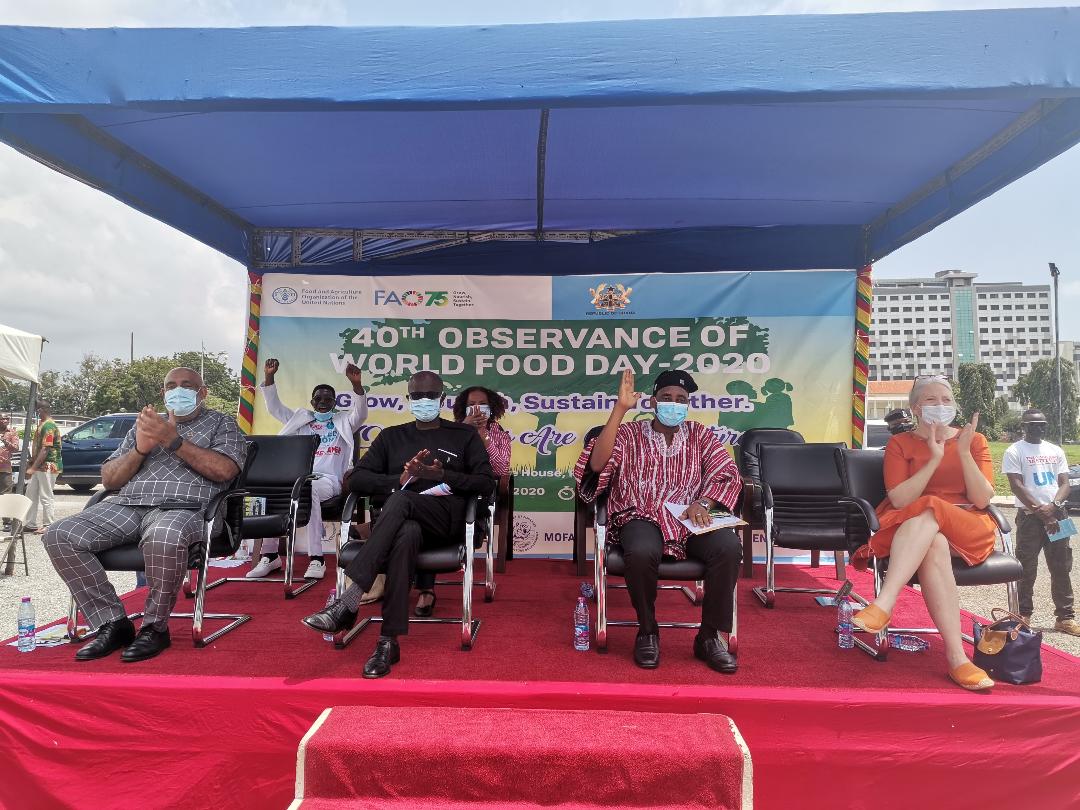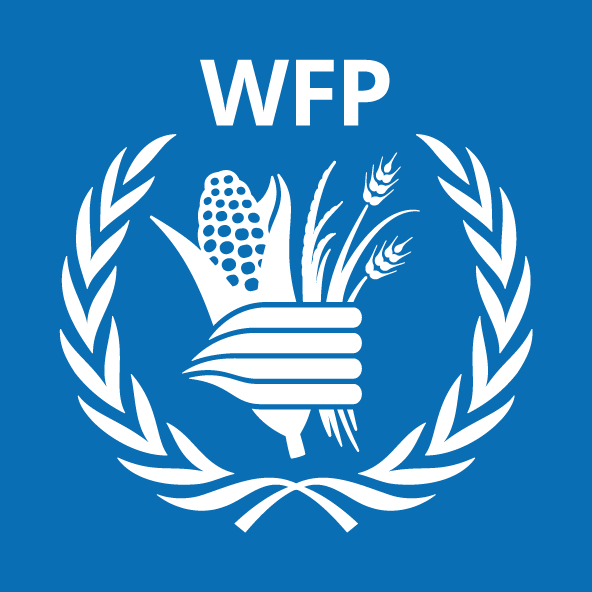Government is committed to implementing comprehensive agricultural policies to ensure uninterrupted supply value chains and strong market linkages to deepen of food safety in all parts of the country.
Dr Sagre Bambangi, Deputy Minister, Food and Agriculture in Charge of Annual Crops, said this at a flag hoisting ceremony held in Accra on Friday to mark the 40th World Food Day (WFD) in Ghana.
The Deputy Minister said the Government was presently putting in place a strategic response to safeguard Ghana’s food security status and ensure a robust food system that would minimize the impact of destructive forces in the short, medium and long term.
The strategies include the promotion of value addition, agro processing, expanded storage facilities, innovative marketing of farm produce and mainstreaming of appropriate and improved technology to remove the drudgery of farming.
He said under the Nana Addo Dankwa Akufo-Addo administration, a strong partnership had been built with stakeholders to transform Ghana’s agriculture through the Agricultural Sector Working Group (ASWG) platform.
The ASWG platform provides the opportunity for reviewing policies, assessing the sector’s performance, sharing ideas, knowledge and lessons to maximise the benefits of interventions in the sector.
Dr Bambangi said Ghana had been on course and remained fully committed to achieving food security as the planting for food and jobs initiative had helped to ensure food security, evident by annual food surpluses and a new trend of food export into neighbouring countries.
Mr Charles Abani, United Nations Resident Coordinator, Ghana, said there was an urgent need for all nations to put in more efforts to end hunger while ensuring that everyone had enough nutritious food to lead an active and healthy life.
He said next year, the UN Secretary General’s food system summit would be a critical moment in the global efforts to make food systems work for people
He called on consumers and the private sector to join the government in building a world free of hunger for all.
Ms Rukia Yacoub, World Food Programme Representative and Country Director to Ghana, said the world produced enough food for everyone, but “there is still no access to nutritious and affordable food for everyone.”
She said smallholder farmers in developing countries needed support to grow crops in a more sustainable way.
“We need to build dynamic food systems which contribute to community-base agricultural growth and strengthen national economies,” she said.
Available statistics suggest that over 820 million people world-wide suffer chronic undernourishment, whiles 60 per cent of women and almost 5 million children under the age of five die of malnutrition related causes every day.
The sad irony is that over 600 million people suffer from obesity with a further 1.3 billion deemed overweight. The grim statistics highlight a clear contrast and disproportion of food availability to people across the globe.
The World Food Day (WFD) is celebrated every year on Friday October 16th to promote awareness and trigger action towards the elimination of hunger, by calling global attention to ensure food security and nutritious diets for all.
Since the inception of the WFD, the focus of the celebrations has been to highlight the fact that food is a basic and fundamental human right that ought to be respected and enjoyed by everyone regardless of age, sex and status.
This year’s occasion marks the 40th milestone of the World Food Day celebrations and it’s under the theme “Grow, Nourish, and Sustain Together our Actions are our Future”.










Discussion about this post